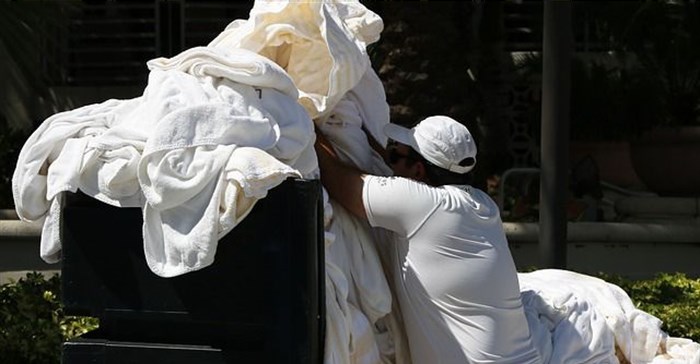The Western Cape often tops the charts as a must-visit destination for tourists, however, an influx of tourists, rather than being a blessing, can worsen the current water crisis felt throughout the province. Cheapflights have pulled together a few savvy water saving tips for travellers who want to visit the Western Cape over the winter holiday and travel responsibly.
“Tourism is a major contributor to the local economy - our data shows that the Western Cape is incredibly popular with international tourists. Of all searching for travel to South Africa, 39% of UK searches and 67% of searches from Germany are for Cape Town. We also see a big influx in travel to the region from local travellers, as the South African schools break for their winter holidays,” explained Andrew Shelton, managing director of Cheapflights.
“While tourism to the region is to be encouraged, it is also one of the biggest drains on the province’s natural resources. And even though the winter rains have started, the area continues to be considered a disaster area, with strict water restrictions remaining and likely to do so for years to come as the region recovers from the devastating drought. By employing a few water-wise practices, tourists and local visitors can enjoy the best the area has to offer, while not placing undue strain on water supply,” continues Shelton.
The top water-saving tips for travelling are:
1. Before you fly: Book eco-friendly accommodation:
A number of hotels, lodges and Airbnb owners support water conservation by collecting rainwater, recycling water and employing other water conservation strategies. Support the conservation effort by researching and staying at these establishments.
2. In-flight: Opt for reusable containers:
Travelling is thirsty work but it takes up to six times as much water to produce bottled water than is in the actual bottle. Whenever possible use a reusable water container and fill up as needed – it not only saves water, it’s cheaper too. The municipal water in South Africa is safe to drink, so fill up before you leave home and continue to refill as you go along.
3. When you’re there:
• Wash not, waste not - Most travellers know that hotels give patrons the option of not having their towels laundered daily. “This is such an easy and convenient way to help save water; simply hang your towel up instead of leaving it in the bath or shower and you contribute to massive water and electricity savings,” shares Shelton. “Another recommendation is not to launder clothing in the hotel as many hotels wash guests’ clothing separately – even if it’s only one or two items.”
• Turn off the taps - Many people brush their teeth while leaving the water running – it’s just a quick brush after all. What they don’t realise is that keeping the tap open can waste up to six litres per minute. The same goes for shaving - filling the basin leads to a significant reduction in water wastage.
• Shorter showers - An eight-minute shower uses about 120 litres of water. Sticking to shorter showers still gets the job done, but with less water wastage. Showers generally use less water than baths, and so the Western Cape government has requested that people always shower instead of using baths, and when showering, to keep it to two minutes or less.
“By practicing these tips, tourists to the Western Cape can dramatically reduce water consumption, without being inconvenienced themselves,” Shelton believes.


































